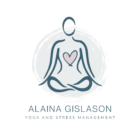In my early twenties I had panic attacks. I didn’t know anything about anxiety, or panic, or any other mental health issue back then so I didn’t know what was happening.
I would have panic attacks in my workplace when I was sitting in a private setting with another individual trying to sell them additional products to their basic purchase. I had the entire gamut of symptoms…racing heart…trembling…difficulty breathing…chest pain…feeling weak…my skin would become flush…it was horrible and I didn’t know what it was. I also didn’t know to reach out to a doctor for help. When I left that job, I no longer had panic attacks.
Fast forward to my late forties when I started having extreme difficulty breathing when exercising. So, I stopped exercising. However, it seemed to be progressive as I started having difficulty breathing during activities of daily living. Even eating was hard to do. Then one morning I had difficulty breathing just getting out of bed. I went to the emergency room that morning. The ER doctor was kind and ordered some tests and gave me some Lorazepam. An hour later, he asked if I was feeling better. I said “not much.” He asked me what I would do if he sent me home. I said, “nothing, because I couldn’t do anything.” I explained that I would just stay in bed and not go to work because I didn’t think there was anything I could do. I couldn’t breathe and I was certain there was something seriously wrong with me. He admitted me.
I had some more tests done, checking my heart and lung functioning, and the next morning my family doctor visited me and told me how healthy my heart was as the tests showed no issues. He said that I was having panic attacks. I didn’t understand this. I thought I was happy and comfortable in my life at that time. He gave me a prescription and sent me home.
My next step was to talk to a counselor and to embrace my yoga practice, as well as, some follow up with my doctor. I felt much better within a few weeks and I was much more knowledgeable and aware.
I didn’t tolerate the medications well so I eventually eliminated the medications and, for the most part, I have been able to avoid pharmaceutical intervention for anxiety and panic since then.
A few months ago, I was trying to get new glasses and I had a bad experience with an optician and did not get my glasses there. I still needed new glasses and I recently went to another optician. As he was talking and providing me with a wealth of knowledge about my options and about how lens providers do things, I took notice that I was alone in this store with a stranger. He was perfectly professional, and kind, and helpful. My thoughts were drifting and I had trouble staying focused. For some reason, and if you know anything about anxiety and panic, you know that there does not need to be a reason, so for some reason I became suddenly uncomfortable with sitting alone with this nice man. I could feel the symptoms of a panic attack coming on. I could feel my breathing change, and the heat starting to surface on my skin. This made me feel more panicked. I thought I might have to excuse myself and come back later. As I watched the whirlwind of thoughts in my mind and felt the sensations in my body, I wondered what I should do, and I chose to respond. I told myself to be present and focus on what he was telling me and focus on the task at hand. I told myself to just breathe. As I repeated these to myself and practiced and focused on being present, I noticed my breathing normalize and my body and mind become calm. I could hardly believe that I had accomplished this. I attribute this ability to my Yoga Nidra practice where I have learned to “welcome, recognize, and witness.” I’m not sure that I practiced the “welcome” part in this situation, but I most certainly recognized and witnessed what was happening. I recognized that there was a panic attack brewing. I witnessed my thoughts and sensations in the body. Rather than reacting, I responded with presence and I diverted a panic attack.
Yoga Nidra, also known as, the yoga of sleep, is a form of guided meditation where there is nothing you need to do, but lay down and relax and be guided through a layered process to achieve a state of relaxed awareness. Yoga Nidra teaches you to welcome what enters your field of attention, to recognize it for what it is, and to be the witness to it. Yoga Nidra teaches you to be less reactive, thus leaving you more able to respond to situations as they arise.

